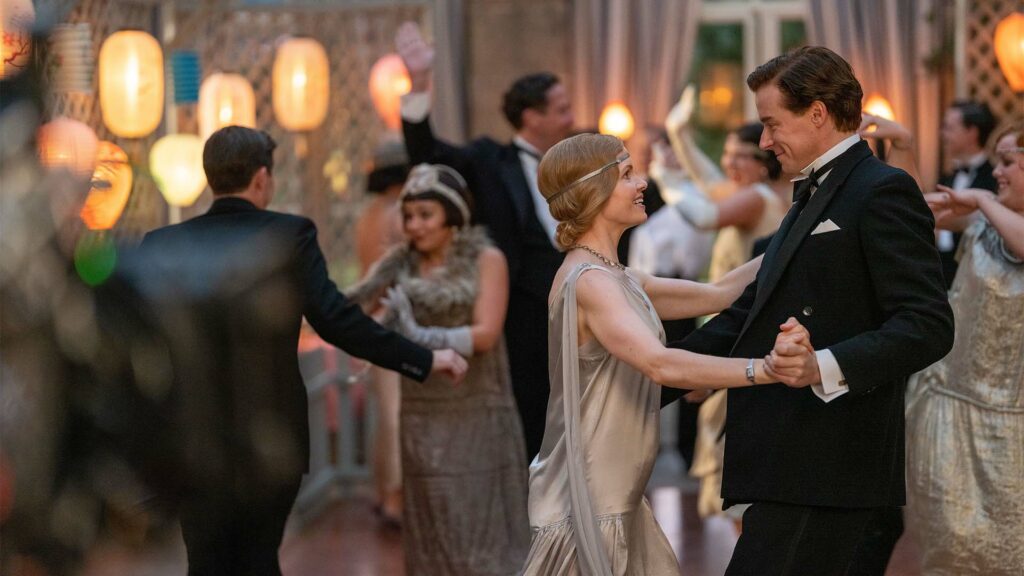Part war film, part romance, Terence Davies‘ recent offering Benediction unravels the mysterious life of Siegfried Sassoon, the world-famous war poet who never seems to have left the battle behind.
Benediction tells the tale of Siegfried Sassoon’s (Jack Lowden/Peter Capaldi) experiences during and post World War I, focusing on his (very public) opposition to the decisions made by the government regarding how the war was organised. Initially, Sassoon was much like the other young men who signed up for the war, buoyed by the promise of adventure and moral superiority. Years later, disillusioned and haunted by the sickening number of casualties on the front line, he submits a letter for public perusal which denounces the decision-making of those involved in prolonging the war. In particular, taking aim at the British government and senior military personnel. Unsurprisingly, it does not go down well with the authorities and our brave young soldier soon finds himself shipped to a military hospital in Scotland, labelled as mentally disturbed.

Yet from this wrong comes a great cause for joy in the form of Wilfred Owen (Matthew Tennyson), another well-known poet (though we meet him prior to his success). Through his meetings with Owen, we witness Sassoon bloom from the overly serious soldier into a lovestruck young man, reminiscent of the smiling youth we were introduced to at the beginning of the film. Soon he is throwing himself into his writing alongside Owen, working together on pieces that will ultimately touch the hearts and lives of readers all over the world. It is genius at work, not to mention history in motion, and for an English literature enthusiast like myself, it is fantastic to see even in re-enacted form.
Their time together is bliss, which soon finds itself forced to an end; their welcome respite from the horrors of reality cut short, as most things were back then, by the war and never-ending call of the front line. In no time at all, their friendship (and all the potential it had) is forced to a halt. This proves permanent as Owen’s subsequent death leaves audiences without a chance of reunion, tortured by what if much like our unfortunate soldiers.
Love is not over, however. Sassoon enters multiple relationships as time goes on, each fascinating and doomed in its own way. Sad for our protagonist, no doubt, yet all the better for us as these unhappy trysts provide much-needed drama and depth to a film that could otherwise prove too serious for most audiences. Each lover is a splash of colour in an otherwise grey film, contrasting nicely to offer a genuinely surprising portrayal of one of England’s most famous poets – warts and all.

The performances throughout are satisfying, though largely unremarkable. Jack Lowden is enjoyable to watch as a young Sassoon, providing an entertaining and sympathetic portrayal of this complicated poet. One moment stirring our blood with fury – directed at both our protagonist and those he stood against – next, twisting our hearts with hope and heartbreak as he seeks out love amongst a sea of betrayal and secrecy. Yet, the standout performance of Benediction belongs to another; namely the previously unexceptional supporting cast member, Jeremy Irvine, who offers a delectable performance as Ivor Novello, Sassoon’s tease of a love interest. Balancing the serious and severe nature of the film, he injects Benediction with wit, humour and some shamefully delicious cattiness, leaving the audience desperate for his presence, even as they know it spells disaster for our hero.
A refreshing mix of war footage, film scenes and voice-over poetry, Benediction explores war in a new and unusual way. Though imperfectly executed at times, it certainly adds a new layer to the experience and creates a greater sense of reality and relevance. The effect is a viewing into which you feel more drawn than ever before. It is exciting to witness and will undoubtedly provide an extraordinary experience for a future production once transitions between the mediums are improved.
Thankfully, while there were some flaws, the overall experience was a satisfying one. Despite being a war film, Benediction focuses little on the conflict itself, choosing largely to use old war footage to show such moments. Instead, we are treated to the deeply personal stories of the men forced to endure and overcome the horrors of the war. The result? A film filled with imagery; an underlying message shining crystal clear. War is evil, always. If for no other reason than the terrible waste it makes of the lives of all involved.
Benediction releases May 20th.
